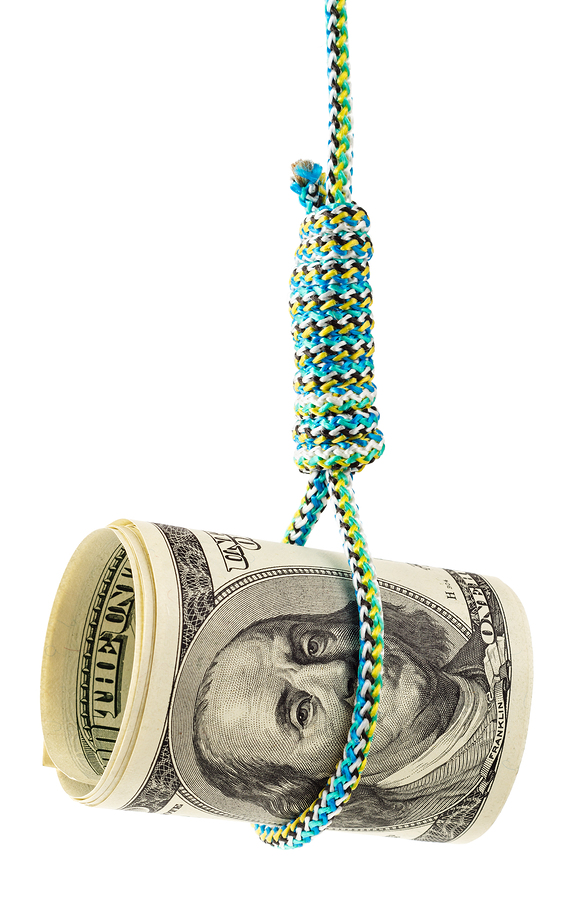Few Americans Are Freezing Their Credit After the Equifax Hack

published Oct 6, 2017, 3:00:07 AM, by Suzanne Woolley
(Bloomberg) —
Consumer advocacy groups such as U.S. PIRG, along with Senator Elizabeth Warren, Democrat of Massachusetts, say consumers should be able to freeze their credit reports at all three major credit bureaus easily and for free.
Sounds good. But how to get people to do it?
Few of us actually freeze our credit files, even in the wake of such massive data breaches as the one at Equifax Inc., which compromised the private data of as many as 145 million Americans. About 2 percent to 3 percent of U.S. consumers currently have freezes on their credit, Gartner Research analyst Avivah Litan has estimated, and she thinks the Equifax breach might push that to 5 percent. Meanwhile, Credit Karma Inc., which says it has 75 million members, saw a tenfold increase in the number of consumers freezing at least one credit report the week after the breach was announced. But after increasing every day starting Sept. 8, activity dropped off on Sept. 15. A Credit Sesame analysis of 4.5 million TransUnion LLC credit profiles showed that as of Sept. 25, just 0.44 percent of them had a freeze on their TransUnion report, an 0.8 percent increase from June.
Some may be confused about what a credit freeze does or how to put one in place. While 47 percent of Credit Sesame members surveyed said they were “extremely concerned” about their data security, 25 percent didn’t know the definition of a freeze. Others may have tried and given up after heavy volume caused glitches at credit bureau websites after the breach. Another disincentive may be the fee to freeze, which ranges from $3 to $10. Equifax is waiving its freeze fees until the end of January, when it will offer a new service it has said will let consumers lock and unlock—an easier way to place and remove a freeze—for free and for life.
When you freeze your credit report—and it has to be done one by one at the three major bureaus, Experian Plc, Equifax, and TransUnion—you essentially stop fraudsters from opening a credit card, a mortgage, or any other kind of credit account in your name. A lender trying to check your creditworthiness will find the data unavailable. If it’s really you applying for credit, you’ll have a PIN—which you get when you freeze the account—to temporarily lift the freeze for the lender. In some states that’s free, but in many cases you’ll pay from $2 to $10 for the lift.
How effective is a freeze? Gartner’s Litan estimated in a Sept. 10 blog post that it will protect you from fewer than 5 percent of the kinds of financial crimes you’re subject to. Still, it’s better than nothing.
Perhaps another reason we don’t freeze our credit is that we are just uncomfortable being without our little plastic enablers. Three out of four people surveyed in a CreditCards.com poll of 1,000 consumers said they had made an impulse purchase at some point. Of that group, 16 percent had spent $500 or more, and 10 percent had spent $1,000 or more. Fun fact: Men were much more likely to impulse-shop when intoxicated.
Behavioral economics expert Dan Ariely of Duke University is among those who have urged us to literally freeze our credit cards to curb impulse spending. (People actually do this. Putting water and credit cards in a Ziploc bag and popping it in the freezer seems the way to go.) When we pay in cash, we feel the pain of paying; it’s less abstract. All of the incredibly easy ways we have to pay electronically don’t bode well for America’s savings rate.
With the holidays coming up, people literally freezing their credit cards will be forced to plan their purchases, which usually means spending less. That means more money stays in their account and can be saved for retirement, used to pay down debt, and so forth—all things that leave you in better financial standing.
So how about a double freeze, America? Protect yourself from hackers, and from yourself.
Have personal finance questions or lessons to share? Join Money Talks, the new Facebook community from Bloomberg News.
To contact the author of this story: Suzanne Woolley in New York at swoolley2@bloomberg.net To contact the editor responsible for this story: Peter Jeffrey at pjeffrey@bloomberg.net
COPYRIGHT
© 2017 Bloomberg L.P







No Comment